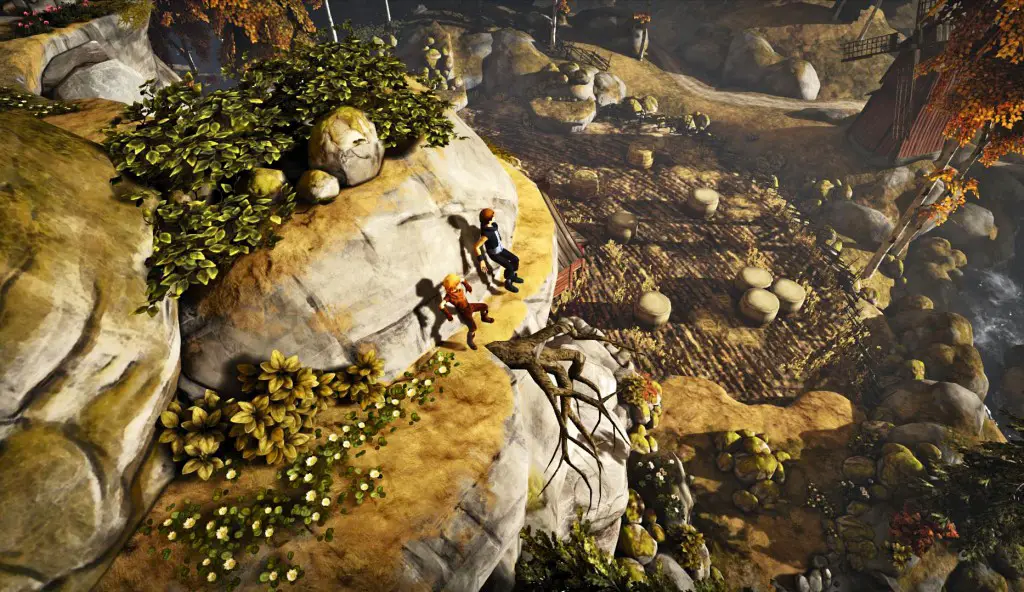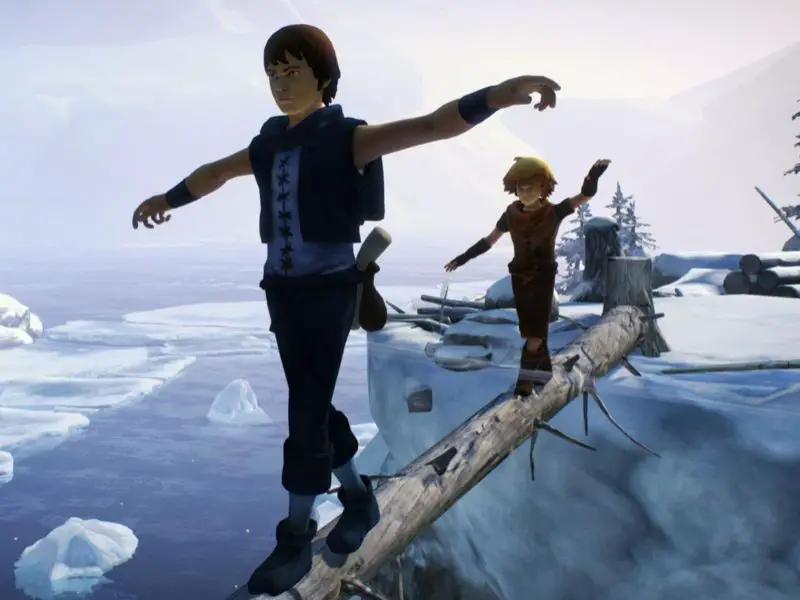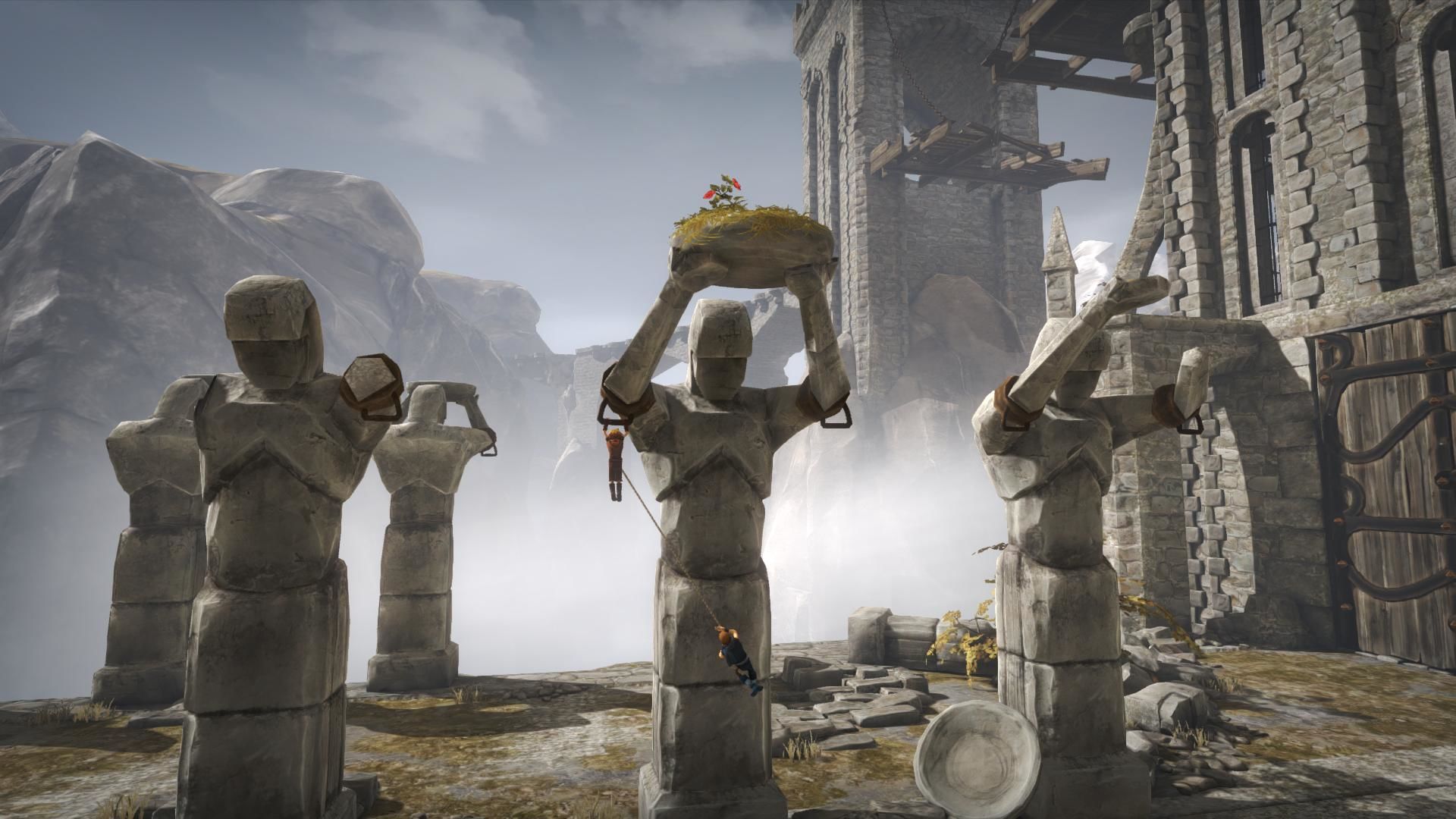I recently got around to playing Brothers: A Tale of Two Sons. It’s one of those games I picked up forever ago, and it just sat around.
I got it because it has to be one of the most critically acclaimed games I’ve ever seen. Giant Bomb and many, many other gaming sites gave it a 5/5 or very near such a perfect score.
I’m going to take a contrarian view, and I’m going to back up my claims with hard facts.
Anyone paying attention and who knows about games should know better. I’m very confused as to how “experts” could have thought this game was good. I’m confused about how “experts” could have even liked the game.
What Genre is Brothers: A Tale of Two Sons?
First, the game suffered from genre confusion.
I’m all for experimenting with new, cross-genre ideas, but there has to be some content there at the end of the day.
Was it a puzzle game? No.
It fails on this front because I never once had to “solve” something. From start to finish, the solution of how to progress was immediately obvious. Moreover, many of the puzzles repeated … several times … like, way too many times for a game this short.
Was it a platformer? No.
The platforming aspects were too easy, and the stakes were too low. I think I died at one point because I accidentally let go of a trigger. That was my only death, and basically, it happened because I itched my face or something.
I got to repeat the task immediately with no penalty.
There is no platforming difficulty at all. In fact, many elements were downright bad on this front:


The number of places where you must edge around a cliff or cross a narrow bridge got on my nerves.
Not because I had to execute something challenging, but because the game designers clearly have no idea why other games use these elements.
There is no risk of falling. The game won’t let you—I tried. So what’s the point other than to slow the player down? It’s more than an annoyance; it’s bad game design.
Story Issues
Basically, Brothers: A Tale of Two Sons must be a story-driven walking simulator because we’ve now determined it isn’t any of the other genres it’s crossed with.
So, how is the story?
Oh, boy. Don’t get me started. It’s terrible.
First, it starts with a MacGuffin. This is already bad, mostly because we don’t even know what we’re setting off on our adventure to find.
We only know it will magically save our father. That’s convenient. Where are we going? How do we know this cure will work? Don’t the writer’s know that MacGuffins are considered a cliche trope indicative of bad storytelling?
Tone
Then, we haven’t even left our town, and a kid is trying to stop us.
Why is this happening? Our father is dying, and this kid doesn’t want to let us through.
I get it. They needed an excuse to set up some “platforming puzzles” (that, recall, require no platforming or puzzle-solving skills).
But you can’t have such a disgusting character with no motivation. I hate the term “ludonarrative dissonance,” because I’ve never consciously experienced it.
But here I did.
This conflict between gameplay and story already ruined the mood of the game in the first five minutes.
Another act of ludonarrative dissonance was when I got to this big castle that I couldn’t enter, but it had these perfectly placed pegs to grab on to (not quite the picture I wanted, but you get the point):

Really?
This highly fortified castle has this convenient other way to scale it with perfectly placed pegs, just the right distance so that the rope randomly tied between the two brothers barely reaches.
Is this a story game or a puzzle-platformer?
If it’s a platformer, we could overlook these huge narrative flaws. But it doesn’t work as a game in that genre. It’s a story game, but these scenarios wreck the suspension of disbelief for the story.
More succinctly, in the language of game design, these sections involve “environmental puzzles,” but the puzzles don’t occur naturally in the environment at all.
This is bad game design.
Deus Ex Machinas
And let’s not even go there with the deus ex machinas.
Are you stuck and can’t actually progress? Yes?
Oh, well, good thing a giant appears out of nowhere and just throws you across the ravine.
Did you get to the top of the castle only to be at a dead-end? Good thing there is a bird trapped in a cage that will fly you to the next area.
It gets worse:
How is that bird even still alive?
It’s been trapped in a cage for who-knows-how-long, bleeding, without any food, and all the people that could feed it are dead.
Are we really supposed to believe the bird is still alive?
The Ending
Lastly, people claim the ending is really sad. They claim they were moved to tears. I couldn’t get past the shrieking woman singing that shrill song at the climax.
It ruined the mood. Ending Spoiler:
On a more serious note, I’ve already mentioned all the reasons I never got into the story: ludonarrative dissonance, tropes/cliches, unmotivated characters, ruined suspension of disbelief, plot holes, etc.
I just didn’t feel anything except relief the game was over.
On a positive note, the concept could have been amazing.
A Missed Opportunity
Part of what made the game easy was that the core concept was never executed to its fullest. You have to move one of the brothers with one hand and the other with the other hand.
The potential for some truly interesting and difficult gameplay is there.
All they had to do was design parts where you have to move both at the same time in fairly precise and independent ways.
Instead, they stuck to having you move both in parallel or one at a time. That was the main downfall of the game: It didn’t even deliver on its core innovative mechanic.
Overall, each element has much better games.
- For puzzle platforming, there are dozens of examples: Braid, Thomas Was Alone, Teslagrad, Super Meat Boy, Trine, and on and on.
- For story, there are dozens of examples: Gone Home, Bastion, To the Moon, and on and on.
- For atmosphere: Limbo, Dear Esther, Kentucky Route Zero, The Long Dark, and on and on.
I see no reason why anyone should play this game under any circumstance. There’s just much better games on every front.
I know.
The whole is better than the sum of its parts for some games. In this case, that is not true. In fact, many parts messed up other parts. What the critics and people who liked this game were thinking is beyond me.
Brothers: A Tale of Two Sons should be skipped in favor of one of the above-mentioned games by any person on the fence about it.

